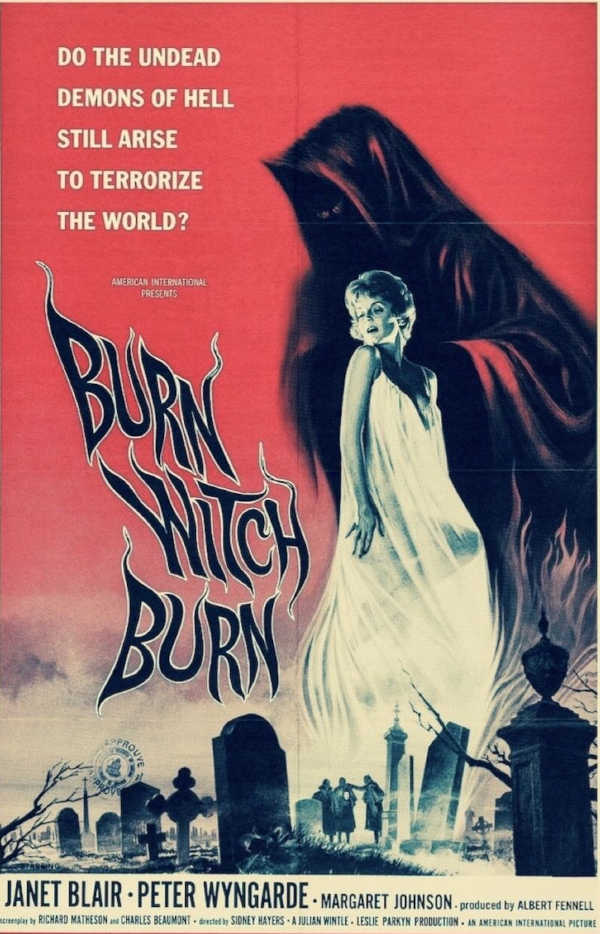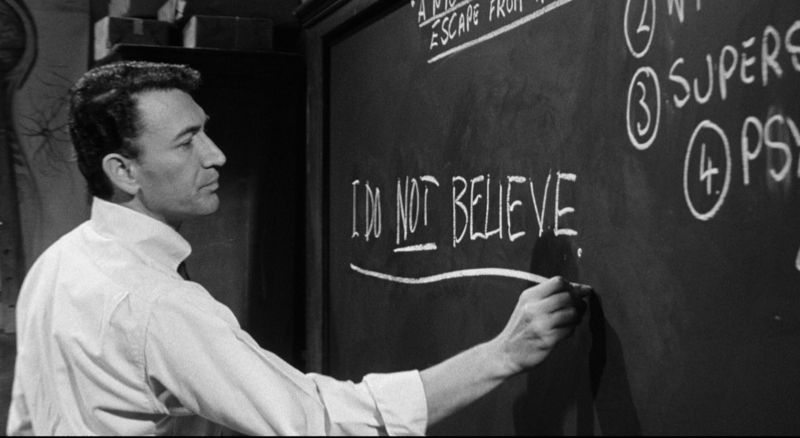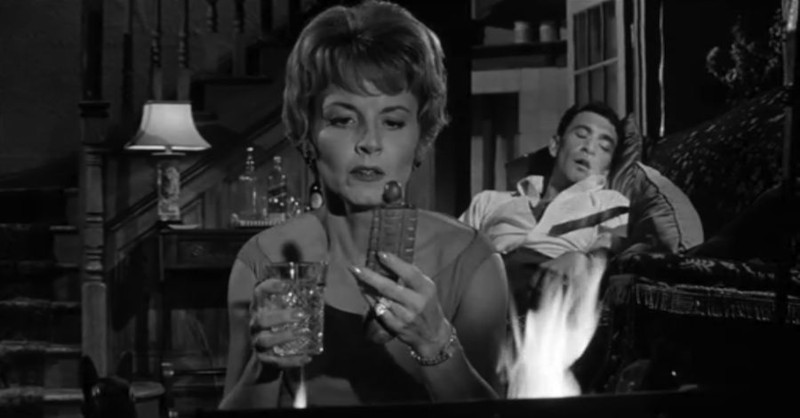Secrets and Screams on the Silver Screen: Burn, Witch, Burn
Let’s go to the movies. I like reading reviews, and I thought I would offer movie reviews in the same way I write book reviews in Fang and Bullet. I’m not an expert film critic, and I did not stay at a Holiday Inn Express last night either. (I said that to my wife, and she just gave me a blank look. Am I the only one who remembers those commercials?) All jokes aside, I do have something to say about what I watch, we all do. Let’s get started.

Burn Witch Burn (1962)
Do you believe in magic? That’s what The Lovin’ Spoonful asked in their 1965 single of the same name. Director Sidney Hayers posed the same question in Independent Artists’ Burn, Witch, Burn three years earlier. Unfortunately, Hayers didn’t have access to the Lovin’ Spoonful song. It would have made for the perfect theme. Of course, film scores weren’t so populated with pop songs in the 1960s. But the point is, do you believe?

The question of belief is central. Norman Taylor, played by Peter Wyngarde, scrawls the word on a chalkboard in one of the first scenes. He does this, of course, because he’s a professor lecturing on superstition. He’s basically letting his class know that anything unscientific is all silly make believe. The rest of the story is a slow-burn turning of the tables. Norman, you see, has his own belief system. He adheres to logic, science, the rational mind. He’s an educated man, and his mere presence oozes hubris. But his belief is tested, and his foundation shaken through the course of the film.
Everything hinges on Norman’s wife, Tansy. Janet Blair’s portrayal of Tansy delivers a twisted take on the bored-wife trope before it’s even a thing. She doesn’t take a lover and sneak around whilst Norman is away at work. No, that’s for brazen hussies. Tansy has standards. Tansy’s a witch.
If only we could have had Diana Ross sing, ♪ Cast in the name of love ♪, because that’s what Tansy’s witchcraft is all about. It comes from the heart, and it’s a true labor of love that she tries to conceal because she knows Norman just won’t appreciate it. He doesn’t. When Norman discovers Tansy’s dark hobby, he scolds her. She explains that it’s a form of self-defense against the evil forces arrayed against him at the university. He’s arrogant and dismissive. Eventually, Tansy is forced to toss her spiders and poppets into the fire.

Things go south for Norman after Tansy’s witchy detox. Anything more is spoiler territory. Norman is on a quest that can best be described as my-wife’s-lost-it-and-I’m-going-to-save-her-and-oh-by-the-way-I’m-a-supreme-jerk. Norman comes across as the friend who posts horrible political posts on facebook and calls people Nazis if they disagree. He is completely unsympathetic, and I found myself wishing ill on his character in the same way I wanted bad things to happen to the protagonist of one of the latter day Star Wars films. I can’t even remember the girl’s name. Ray-gen Kai? (Yes, I know I can easily look it up. My refusal to do so is my not-happy-with-Star-Wars-testimony) I just remember she found Luke Skywalker on some island and then started pestering him. I kept thinking, Luke, use the Force. Make her go away! You’ll feel the same way about Norman.
While Tansy is more likable than Norman, there’s not a lot of separation. She at least comes across as nice, but she’s agitated. She’s worried. That provides a lot of tension, and her expressions lend it all a certain credibility. I kept wanting her to stand up to Norman, but I think that discussion leads to product-of-their-time territory. We’re not here for that. We’re here to be entertained.
So. Is it entertaining? Yes. It’s mesmerizing and spooky. We can regard it as a period piece. I wasn’t around in the 1960s. Watching this makes me wish I were. So what else does the movie offer? It’s a black and white film with delicious contrasts and sharp clarity. It’s dark and moody with a shelf-life that has extended well beyond what you would expect. The music is appropriately harrowing at the right times with one minor exception. The story is intimate, and the setting quaint. Based on the 1943 novel, Conjure Wife, by Fritz Leiber, the movie was also known as Night of the Eagle in Britain. You can view it for free on Pluto TV or at The Internet Archive.